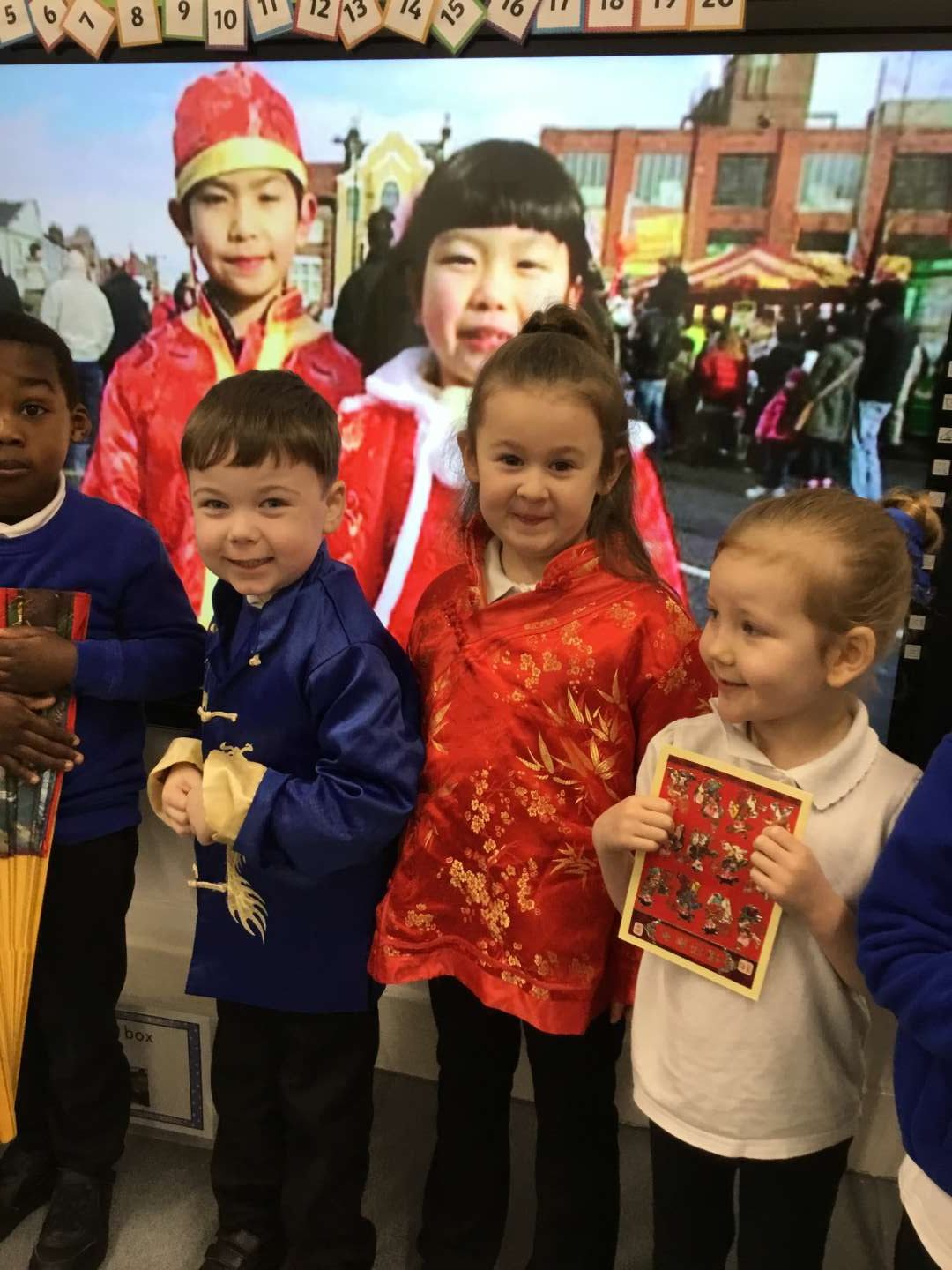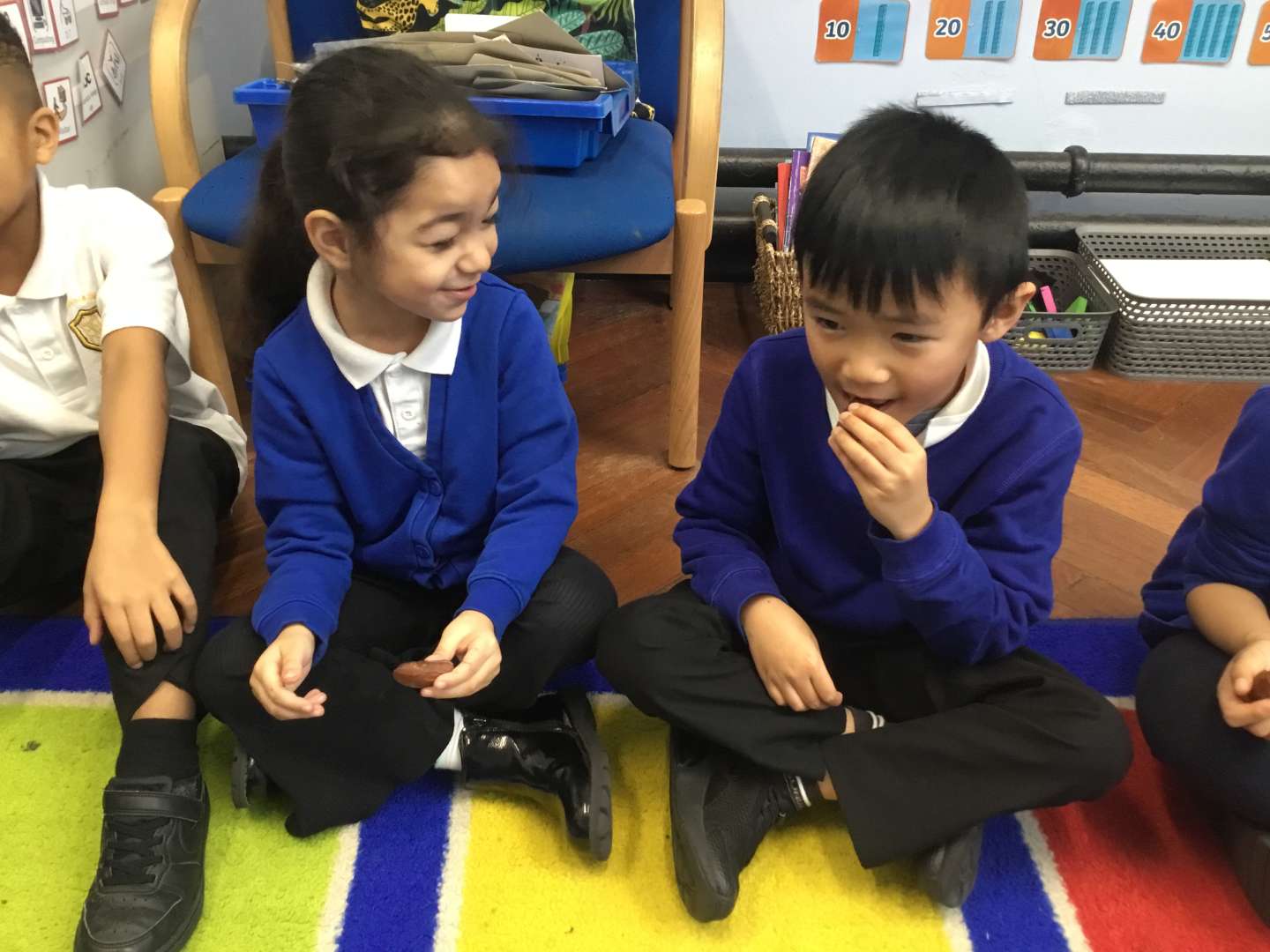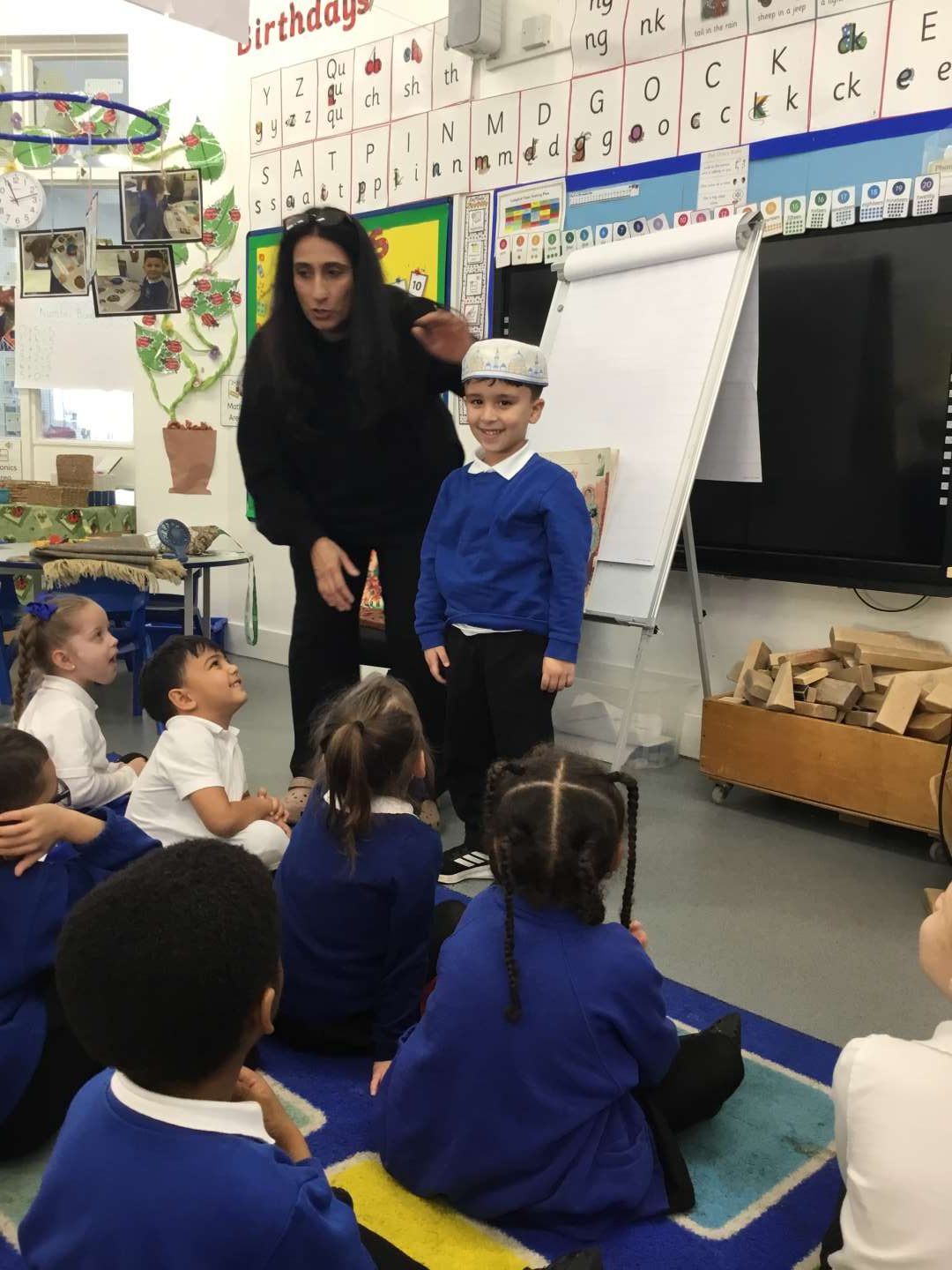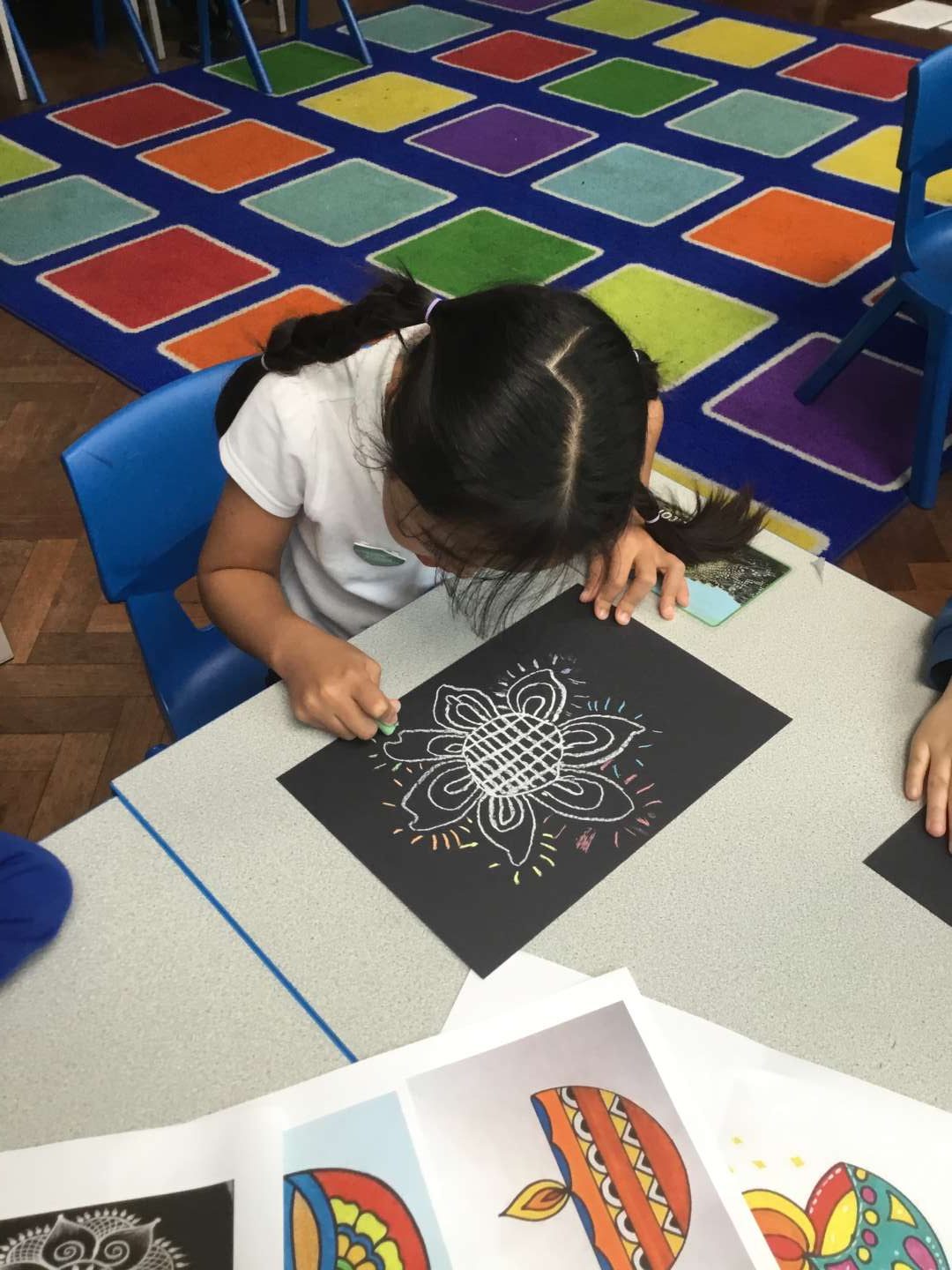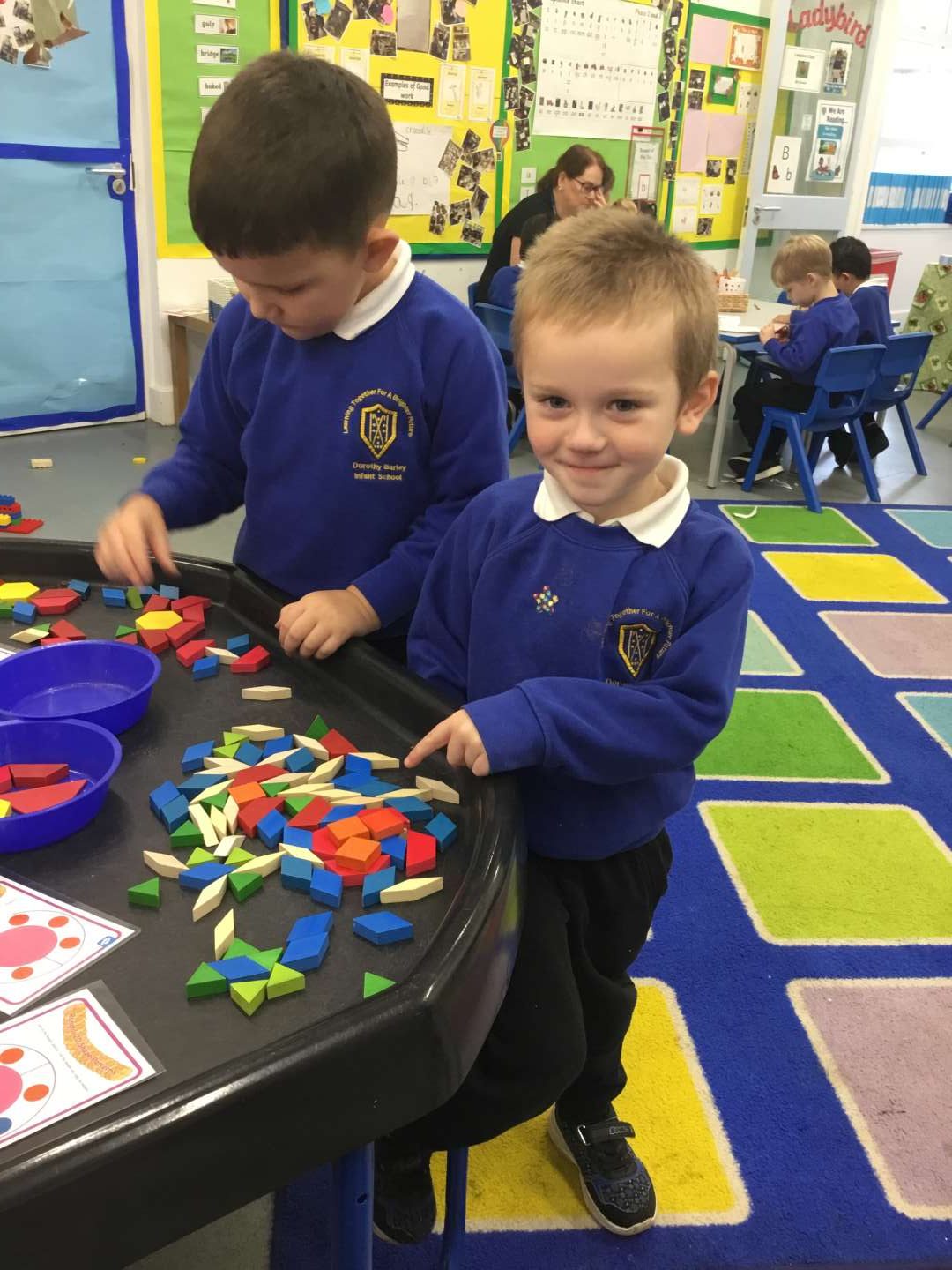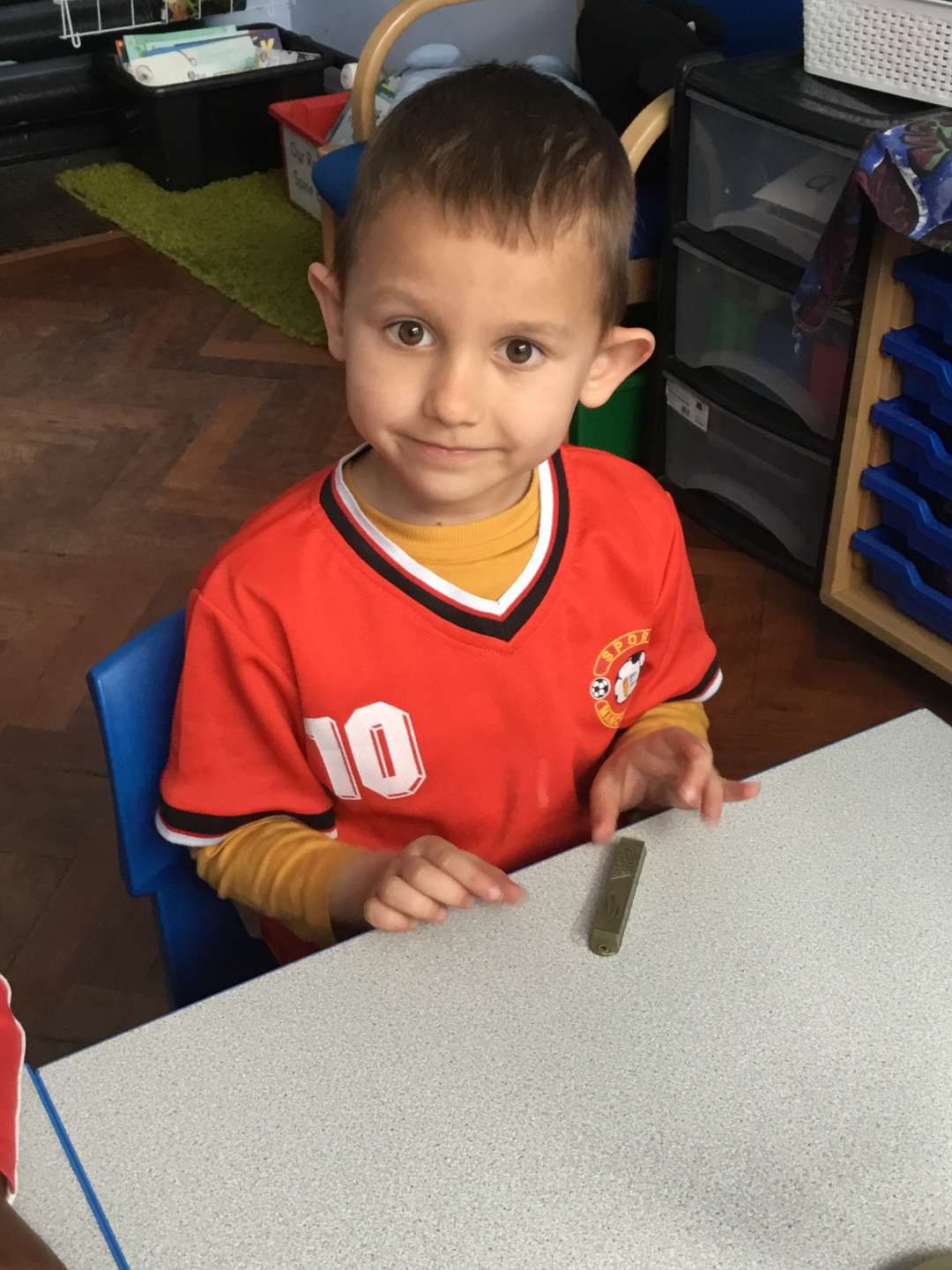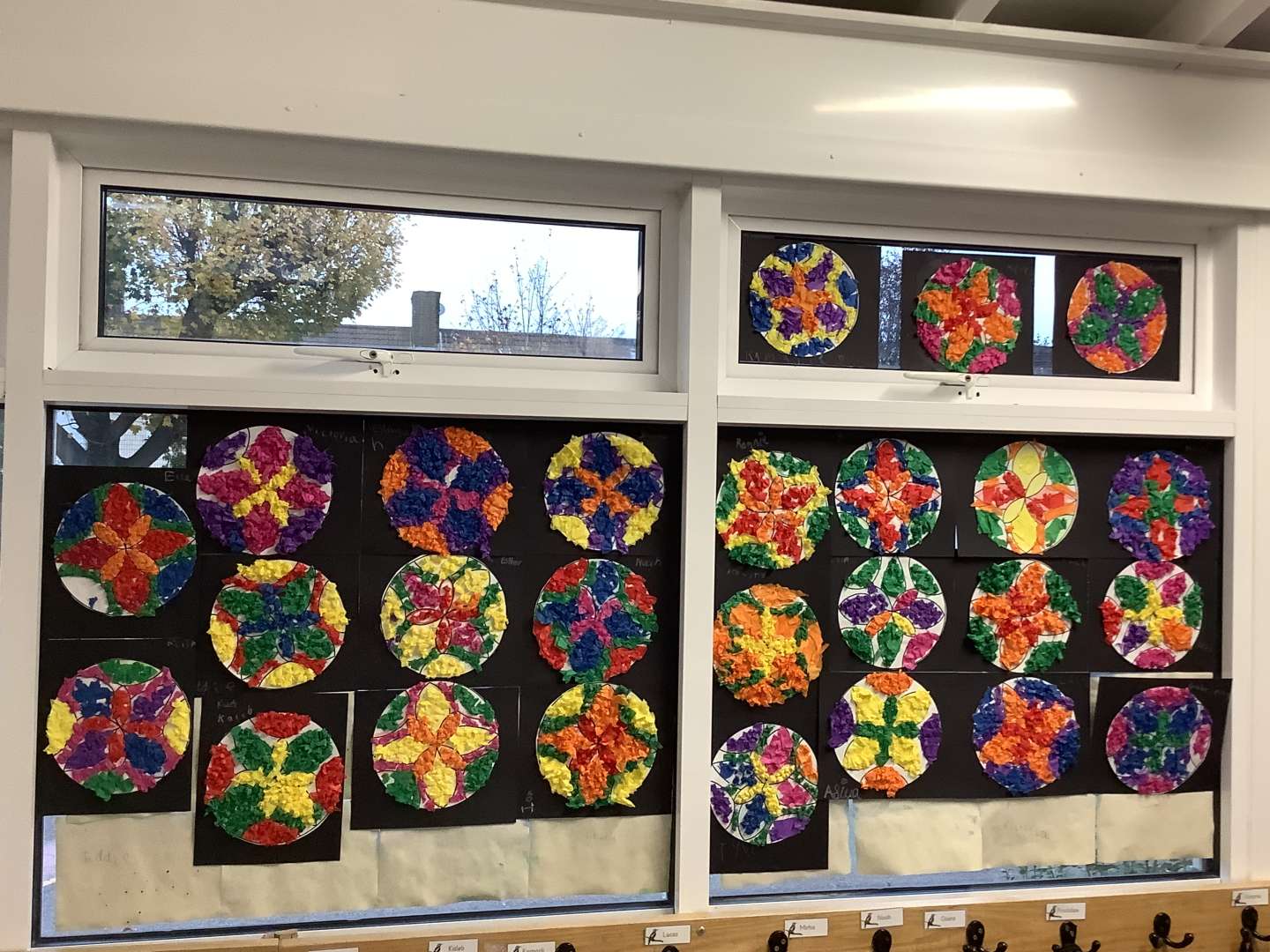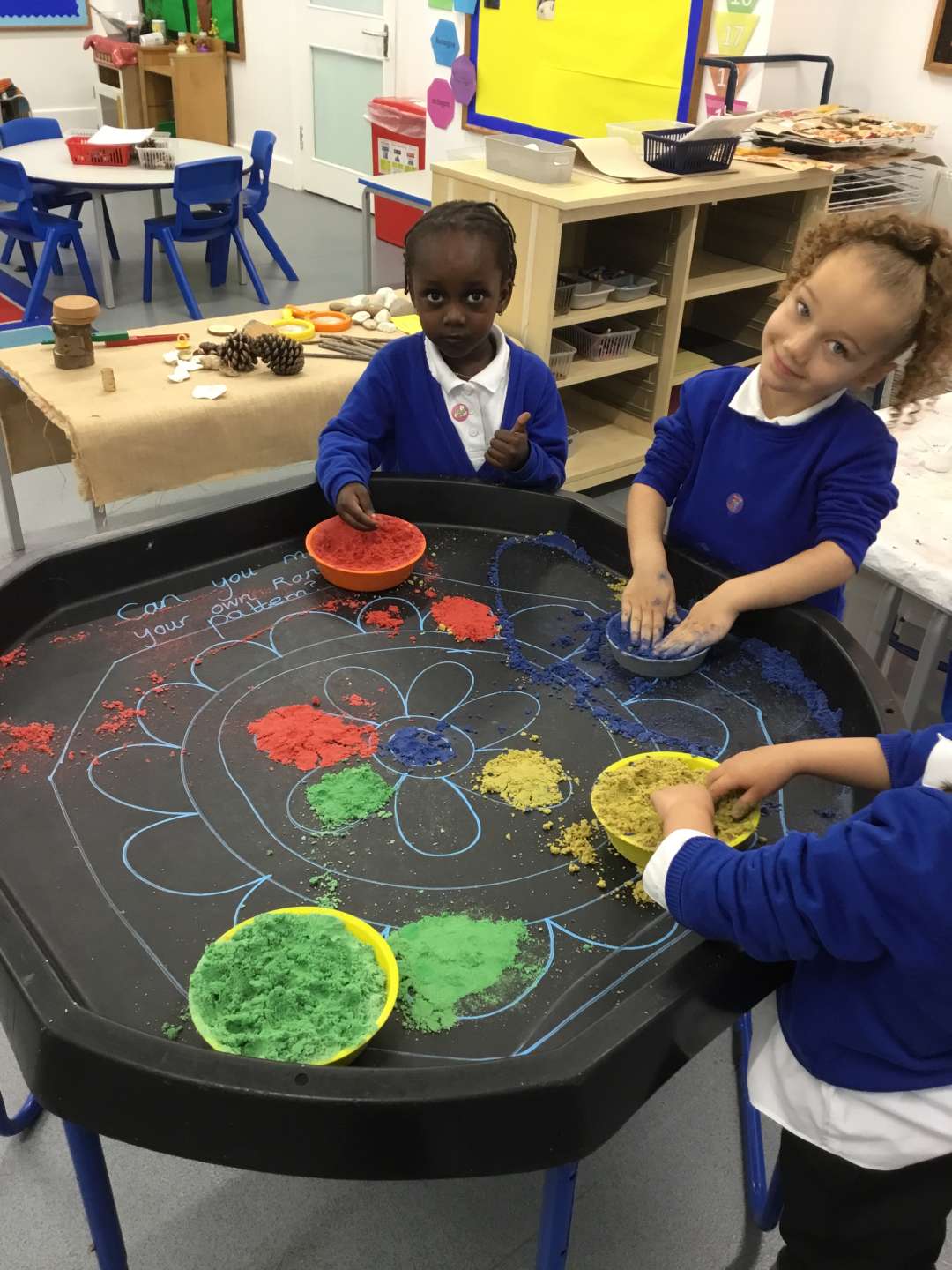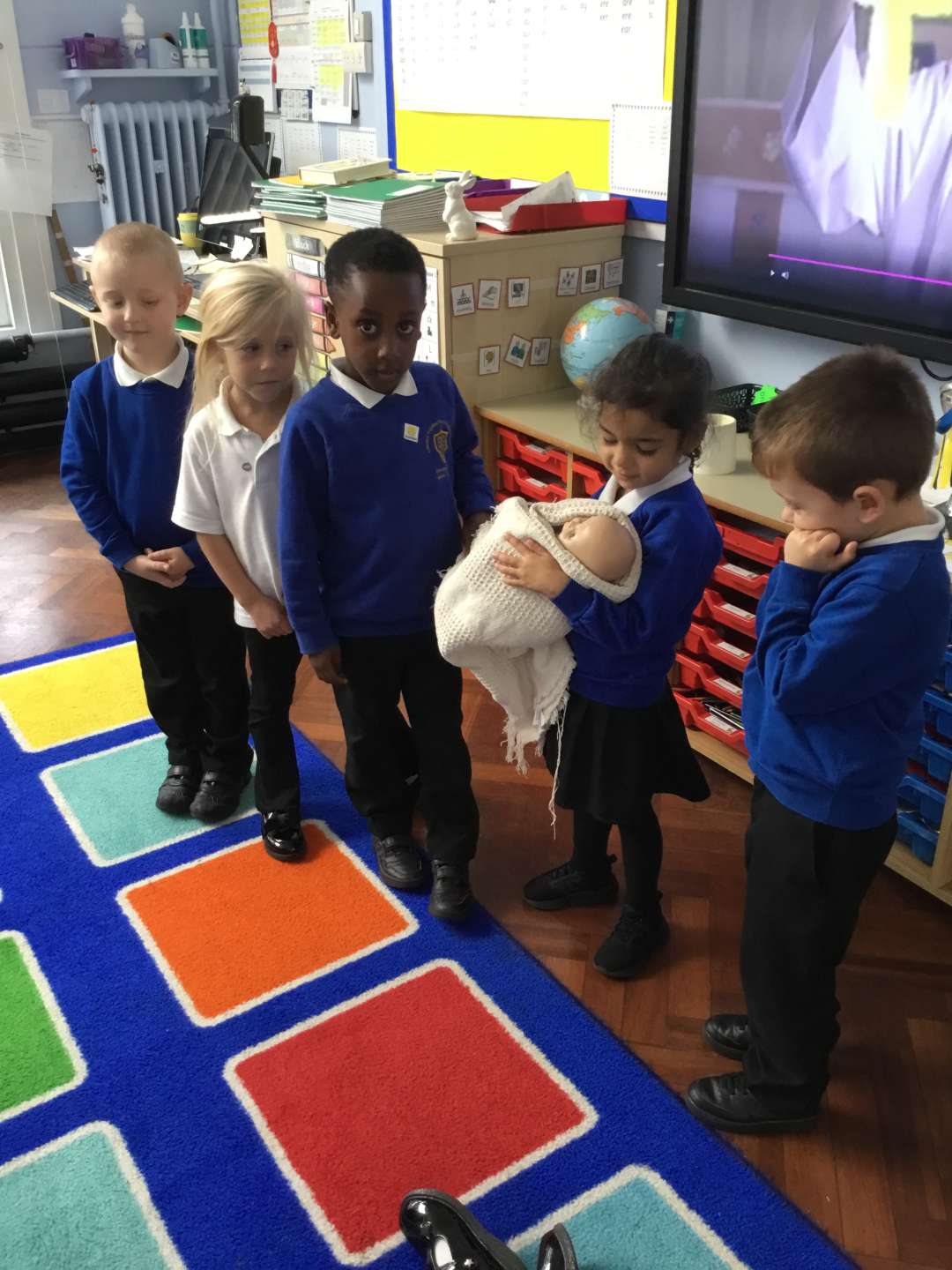Religious Education
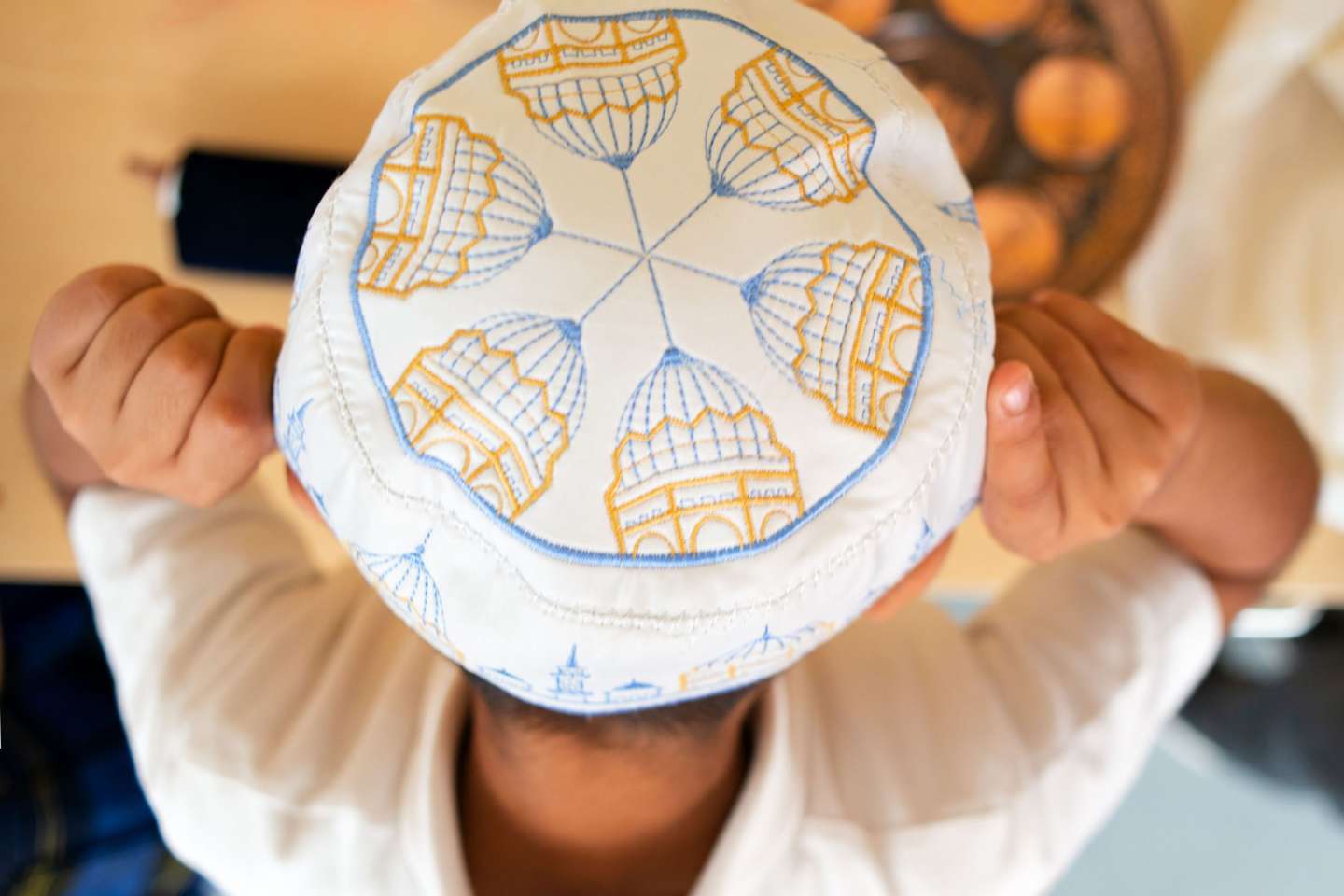
At Dorothy Barley Infant School, we follow the Barking & Dagenham agreed syllabus to support the learning and teaching of Religious Education (RE).
Intent
At Dorothy Barley Infant School, we believe that a high quality religious education equips pupils to be thoughtful, respectful citizens. Our RE curriculum is rooted in a multi-faith approach and offers many opportunities for children to be introduced to different beliefs and traditions, including through planned visits to a range of places of worship. It is enriched with empowering experiences through the use of religious artefacts and the opportunity for children to meet people from different faiths. Through progressive teaching of vocabulary, children are able to express their understanding of religious traditions. RE has many planned, wider links to PSHE lessons, assemblies, cultural celebrations and national events. Children are therefore well prepared for the Religious Education curriculum at Key Stage Two and beyond.
Religious Education At Dorothy Barley Infant School
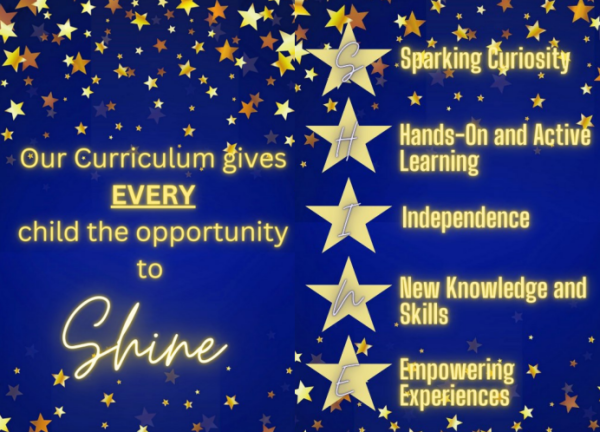
Implementation
At Dorothy Barley School, the learning of RE is embedded through the development of knowledge and skills over time. The curriculum breadth supports learners’ knowledge and understanding of religions and non-religious beliefs. Throughout each year group, the learning deepens their understanding of a variety of religions and world views. Progression is mapped coherently.
Children have access to key vocabulary and sources of wisdom, for example looking at what the Qu’ran or the Bible says about issues. Key vocabulary relating to Religious Education is planned for progressively across the school. Children are taught how to use this vocabulary in context, including through discussion and debate. The pupils follow the Agreed Borough wide curriculum from SACRE which is reviewed every five years. Pupils are given opportunities to explore the main religions found in the UK, including Christianity, Buddhism, Hinduism, Islam, Judaism and Sikhism, as well as non-religious beliefs. RE makes links between the beliefs, practices and value systems of a range of faiths and world-views studied enabling the children to consider their own beliefs and ideas in a safe space, learning from and with each other.
Sparking Curiosity – Through the use of artefacts and other resources, children are encouraged to be curious and open-minded as they explore different cultures, beliefs and traditions
Hands-On and Active Learning – Children have access to artefacts from religious communities, allowing a sense of immersion into religious practices for meaningful learning experiences. Lessons encourage reflection and discussion.
Independence – Children are encouraged to think critically, reflect on their own beliefs and make personal choices about values and ethics in a supportive environment
New Knowledge and Skills – The Religious Education curriculum is sequenced progressively to ensure prior learning is referred to and built upon.
Empowering Experiences – The Religious Education curriculum is enriched by visits to religious sites from all major world religions, expanding the knowledge and understanding of the children.
Curriculum Planning
Religious Education Progression Grid
Early Years Foundation Stage
In the Early Years Foundation Stage (EYFS), Religious Education is taught in line with the Development Matters framework and our locally agreed syllabus, providing children with a rich foundation for understanding diverse beliefs and cultures. Through stories, discussions, and creative activities, children explore themes of friendship, kindness, and respect, while learning about different religious celebrations and practices in a way that is meaningful and age-appropriate. This approach nurtures their natural curiosity, encouraging them to ask questions and share their own experiences, while also promoting respect for others. In this way, we help children develop a sense of identity and an understanding of the world, laying the groundwork for further exploration in Key Stage One.
EYFS People, Culture And Communities Progression Grid
Religious Education Knowledge
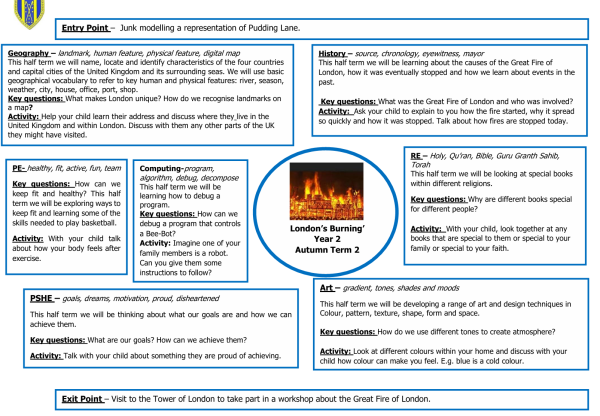
Our curriculum overviews detail the key Religious Education content required for each unit of work. These are shared with children and families at the beginning of each half term to help enhance learning.

